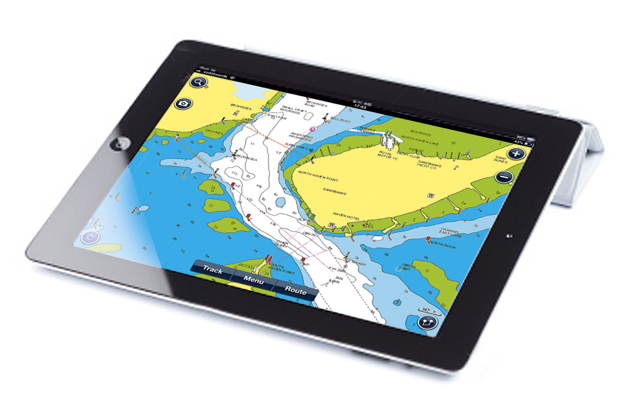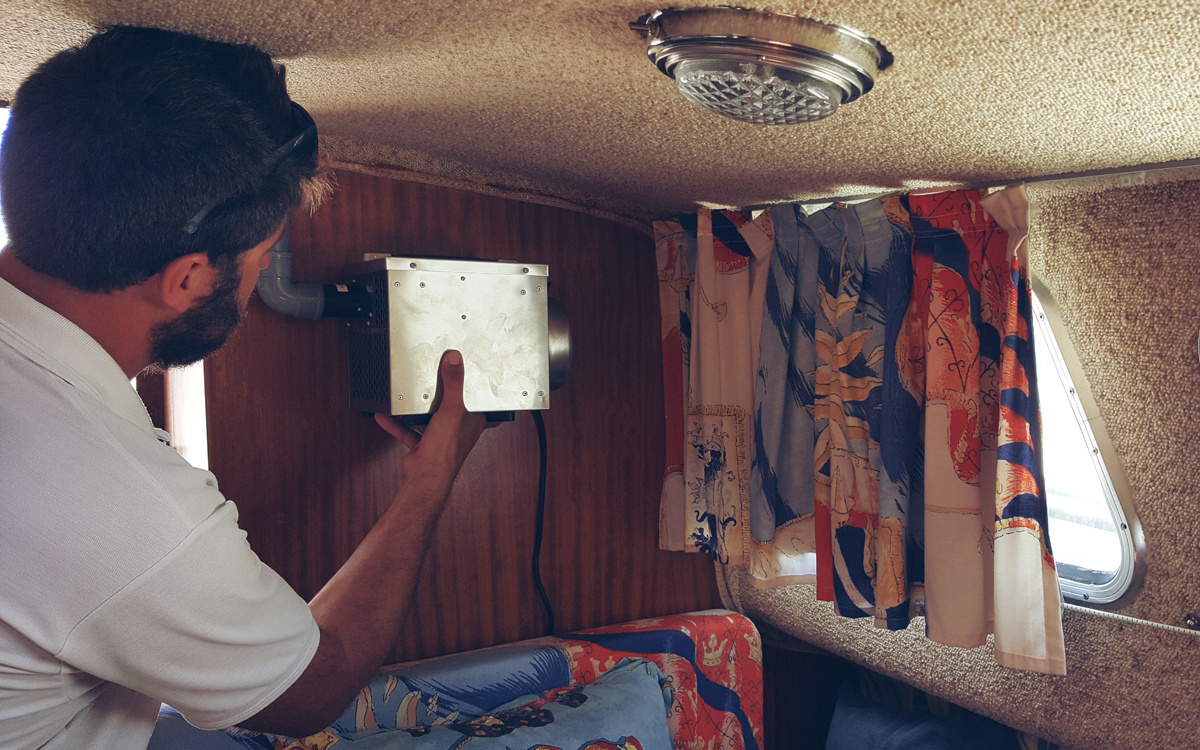Choosing the best boat dehumidifier can be a minefield, as Rubicon 3’s Bruce Jacobs found when identifying which best suit yachts at sea
In the colder months, thoughts invariably turn to damp: one of the constant enemies yacht all owners face. It seeps in everywhere, can find every bit of clothing and equipment and will leave an otherwise perfectly sound vessel a soggy mess inside.
Damp arrives in various guises. The humidity of sea air is often high anyway while the cold sea environment will cool the hull of a yacht. What happens next is exactly the same as happens on car or bedroom windows – when the warm, moist air inside is cooled, it can no longer hold as much moisture and the water is released onto the cooled surface, causing unpleasant condensation to form… followed by damaging mould.
Superyachts have a permanent crew armed with chamois leathers to mop up every day, but for the rest of us there are three ways to prevent this damp and mould. Good insulation is key, but here you’re at the mercy of the yacht builder and the care and attention they paid to the vessel when it was being built.

The DryBoat 12 dehumidifier needs to be sited where moist air can be conveniently piped out through a vent
Next, proper ventilation is important as it expels the warm, moist air before it can do its damage. Cracking open a hatch and running a fan will make a noticeable difference but this is not really an option if you plan to leave the yacht unattended for any period of time. The third option is simply to reduce the humidity of the air inside the yacht and this is where a boat dehumidifier comes into its own.
At Rubicon 3, we swear by dehumidifiers on our high latitude expeditions to places such as Iceland and Spitsbergen, as not only do they dry and warm the air but they clean it too and the improvement to the environment inside the yacht is huge.
The only decision therefore is which one to go for, but here’s where the controversy starts. For us, the choice between a compressor or desiccant model was fairly straightforward: go desiccant. Desiccant dehumidifiers work better than compressors in cooler air temperatures and they produce clean, dry air that is a good 10°C warmer post drying – fulfilling two roles at once.
Article continues below…
iPad navigation apps tested: Pip Hare reviews 7 chartplotting apps
The development of navigation apps has now advanced to the stage where tablets are being used regularly by many sailors…
Pip Hare’s choice of EPIRBs, PLBs and other man overboard aids that could just save your life
EPIRBs When activated, an Emergency Position Indicating Radio Beacon (EPIRB) transmits its details on 406MHZ and, if GPS-enabled, the vessel’s…
They’re also generally quieter and more portable. The controversy, however, is whether your yacht is even insured when using a boat dehumidifier. Many models state in their instruction manual ‘not to be left unattended’ and various insurance companies demand that the dehumidifier must be suitable for marine use or the policy will be invalidated.
A domestic dehumidifier may not be designed to be left on continuously for prolonged periods of time (winter lay-up anyone?) and using it as such may also invalidate a policy. While over five million dehumidifiers have been recalled in the USA in recent years over safety concerns, both Meaco and Ecor Pro, two of the leading manufacturers of dehumidifiers in the UK, have highlighted the sophistication and safety of today’s models and say faults are incredibly rare.
Despite that, the insurance angle became an unexpected minefield for us and highlighted that careful research is needed, with possibly a call to your insurer before buying and using the dehumidifier on the boat.
What to look for in a good boat dehumidifier
- Most dehumidifiers drain into a holding tank or into the bilge. Neither is ideal if leaving a yacht unattended for a long period of time.
- Salty sea air rusts domestic grade metal quickly and most dehumidifiers are not protected against this, hence some of the insurance concerns.
- Many dehumidifiers are portable units that cannot properly be fastened in place to prevent movement when the boat rolls with wash, wind or tides.
Facts
- The dew point is the temperature to which air can be cooled before the moisture held within it condenses from a gas to water.
- Compressor dehumidifiers create a cold surface and when warm, damp air comes into contact with the cold surface, condensation occurs and the water is removed from the air.
- Desiccant dehumidifiers absorb the moisture in the air, like a sponge. The desiccant is warmed and dried by an internal heater allowing it to be reused.
*Yachting World is not paid by manufacturers for our recommendations. If you click through and buy an item, we may receive a small amount of money from the retailer, at no cost to you.*
Best boat dehumidifiers available right now
Meaco Zambezi DD8L dehumidifier
£259.99
Winner of the Which? Award in 2016, this desiccant unit has a host of safety features to protect against electrical or corrosion concerns. It has a three litre tank or can drain into the sink. A great all-round boat dehumidifier that consistently gets top reviews.
Seago Smartdry dehumidifier
£149.99
A smaller, compressor-driven model that has a 1.8lt tank and a continuous drain option. This is a cheap option for small- boat owners looking for occasional assistance with keeping the boat dry.
Our choice
Ecor Pro DryBoat 12 boat dehumidifier
£559
This powerful, commercial grade desiccant unit can remove up to 12 litres a day. The unit is made from stainless steel, all but removing the risk of corrosion on board. It’s a serious option and investment, though, hence best for yachts over 40ft. After much research and using and trialling other models we ultimately selected the DryBoat 12 for our expedition yachts.
It has a hefty price tag, certainly, but we love its commercial grade construction and that it is also easily set up for a permanent installation – meaning it does not sit out in the open getting knocked about.
Most of all, we really liked that it expels moist air through a vent rather than draining into a tank or sink, so it really can be left operating almost indefinitely. It’s rare that we rate something this highly but the DryBoat 12 has proven to be a superb marine dehumidifier that has delivered exceptional results all summer in tough environments such as Spitsbergen and Norway.
Buy it now on MachineMart (UK)
Conclusion
A good boat dehumidifier is an essential investment to help protect the interior of a yacht over the winter months. Whichever model you are thinking about, do ensure it is suitable for marine use, that it can be left running unattended and does not invalidate your boat’s insurance.










